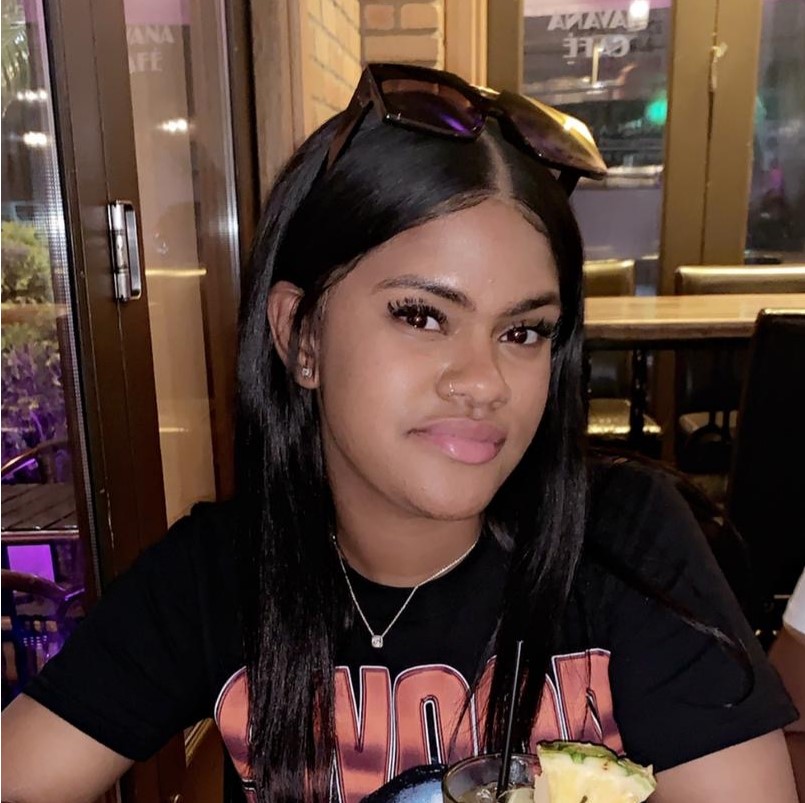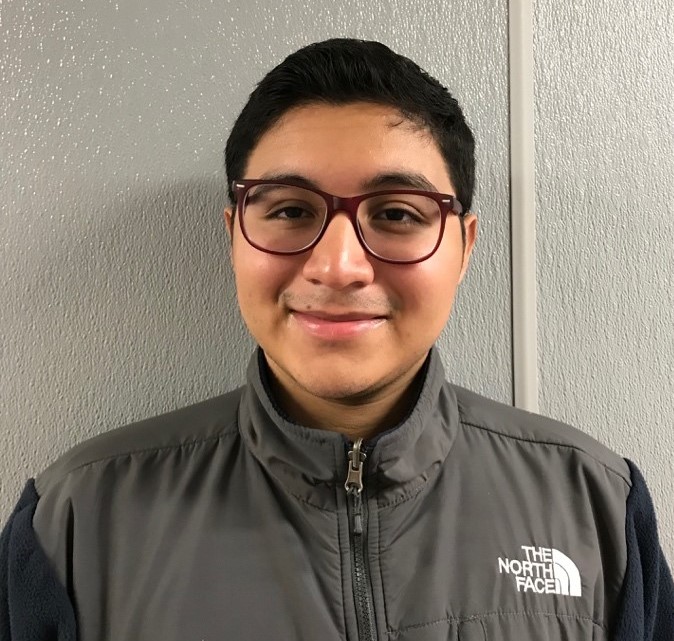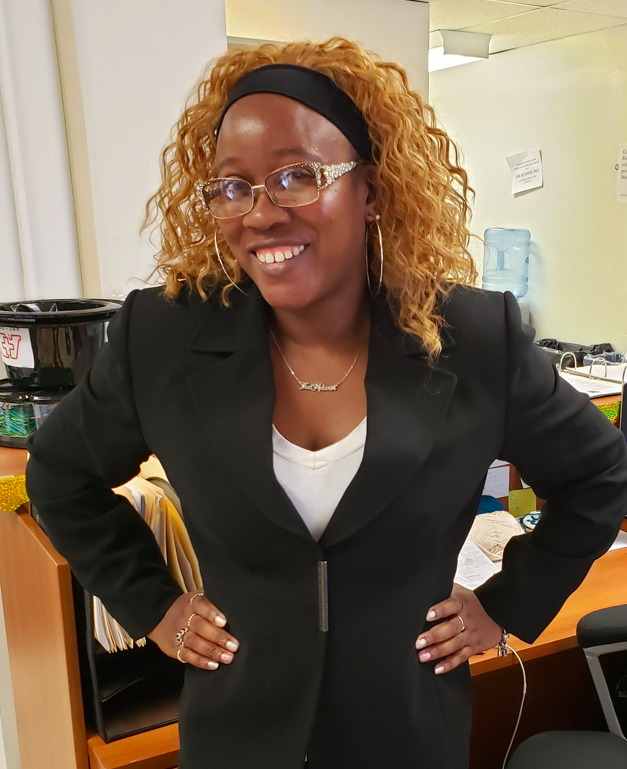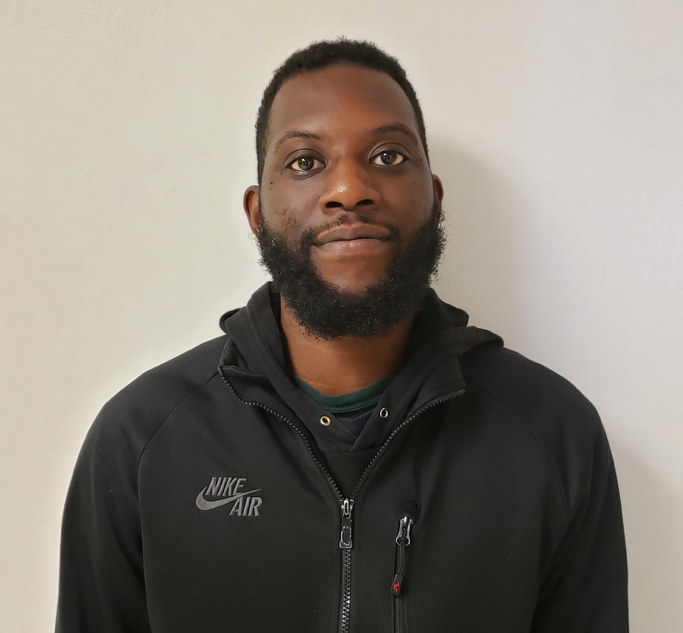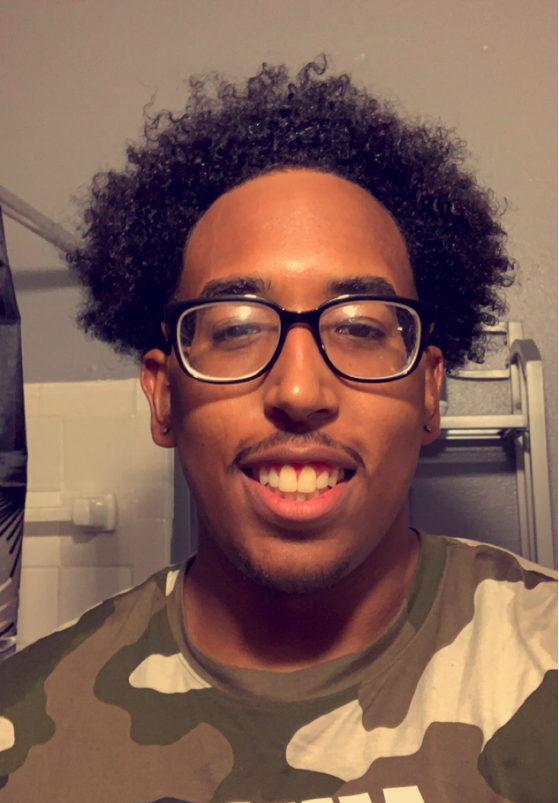

I am majoring in Liberal Arts at BMCC and this is my second year at the school. I have taken an interest in business and accounting and after I graduate I plan on pursuing an internship in those fields.
I am one of the many CUNY students who heavily relies on TAP and the Pell Grant to pay for school. I was also a part of BMCC’s College Discovery program which helped me pay for my textbooks. To provide for myself and assist my family, I work a part time job. My biggest challenge as a CUNY student has been not being able to make use of the resources we have, such as tutoring, because my work schedule would not allow it. My financial struggles have made it quite difficult to graduate on time.
As a working class student, I live with the fact that if it were not for federal assistance I would not be pursuing a college degree right now. Education is not a privilege, it is a right. If people are required to have a degree to make a decent living then education should be more accessible. Most CUNY students are working class students. CUNY deserves better funding so it can continue to provide, improve, and expand services like the childcare center. We deserve the right to an education and better future.


I’m a second year student majoring in business administration, with the goal of getting my master’s in business administration after graduating. I came back to school so that I could gain the knowledge I need to eventually make more money for my family and be self-employed.
I have kids, and it’s not easy to go to college while working and raising a family at the same time. I’m trying hard, but it’s definitely not easy. The support that programs like TAP and ASAP provides allows me to attend school and invest in the future. At the same time, I work as a Direct Support Professional at a group home. Without financial aid, I don’t know if I could afford to go to school, and if I did, I would probably only be able to do like four credits per semester.
In general, I wish that the system were clearer and that CUNY publicized its services more. I might have used the child care center, but I don’t know anything about it or who to ask. A lot of things are not well publicized, especially when you’re coming back to school after a period of working and need to adjust. The ASAP program advisors are helpful, but I know some people who were severely set back by incorrect information from advising.
We need to make CUNY free so more people can get a quality education, and we need to make sure that people are able to access its services.


I was raised in Hempstead, NY in Long Island, in a town that’s most talked about as “chaotic” and “helpless.” I was raised in a family of six, with two Latino parents who came into this country with a different vision for my sisters and me—to pursue much more in this life.
We lived in a basement, all six of us. It was deteriorating and we had no stove, no refrigerator. We starved together; we cried together. Every night, I saw how much I was losing weight, and I just let it happen because I used all my funds just so that my family can eat. Senior year of high school came, and we were still in the basement. I received 6 scholarships, and to be honest, I didn’t use them for me. I used them to feed my family.
I wasn’t psyched about the milestones like high school graduation, but then I applied for an on-spot admissions to Long Island University, to the HEOP Program. I sat with Directors who questioned my reasons for wanting to be in college, and I answered them: “I want to support my family.” I became an HEOP student, and I received academic and financial support. This brought tears of joy. Upon my return back to Hempstead, my parents hugged me and told me, ”We are proud of you” in Spanish.
In 2018, everyone in my family went our separate ways, due to the financial burdens we kept facing. I wasn’t ready for the leap. I kept this secret from my family, but I became homeless and had to sleep inside my co-worker’s car because I had no funds and nowhere to stay. Now, in 2019, I rent a room in Hempstead, and I visit my family.
I am now a SEEK student at Queens College and transferred from LIU Post with a 3.5 GPA. Because of HEOP and SEEK, I can almost give my family and myself the better life we desired for a long time. Because of these programs, I am able to advocate for the youth in Hempstead and tell them that no matter how hard the trials are back at home, an education will heal them. It’s because of programs like HEOP and SEEK that I’ve gained confidence and the voice to share my story. As a SEEK student now, I am proud to say that I receive all the help I need from the SEEK program in Queens College.
We all have a story to share, and I am not politicizing this issue. I am neither a Republican nor a Democrat. I am a human being that cares for all. Us students, who face immense poverty and some academic trails, need SEEK, HEOP, and EOP. Funding these programs will illuminate the lives of those who need support and help those who struggle and yet work multiple jobs, just to receive a degree.
Because of Queens College SEEK, I was able to share my story with you, and I thank you for your time. Please continue to fund these programs because the underrepresented need them.


I’m a sophomore, majoring in history and most interested in focusing on European history, specifically around the world wars. I’d like to pursue a master’s degree and eventually become a professor. It was my high school history teacher who inspired me to get into history; they were particularly good at connecting historical events to current events of today in a fun, relatable way.
I’m currently paying for tuition through TAP, with my parents supplementing out-of-pocket costs to cover the leftover tuition, textbooks, and school fees. I’m the fourth student in my family, with three older siblings, who attended out-of-state schools, took out loans to pay for tuition, and are now paying off their debt.
This is stressful for our family, as the cost of paying for school out-of-pocket and the cost of paying off debt becomes a family challenge. For me in particular, I feel the stress of considering balancing full-time school and part-time work to help alleviate the stress on my family’s budget.
As far as the biggest challenge paying for college? Textbooks. I have to weigh the pros and cons of buying each book individually; I play a complicated guessing game to determine which books will be necessary for which classes in order to be successful while saving money. This is a familiar game among many undergraduate students. How do I get an A without breaking the bank? Students should never have to go without textbooks—a key component in receiving the education we’re already paying for—in order to conserve money needed to get by.
Ultimately, my goal is to receive two degrees from Queens College while taking on as little financial burden as possible and being connected to stable career opportunities, and I don’t think that’s too much to ask for.


I am a senior at Queens College majoring in film studies and English. I love to analyze stories in books and movies so that informed my choice of major. I receive the Federal Pell Grant and TAP as part of my financial aid. I try to save some money by getting books from the library, but for textbooks, my bill can climb into the hundreds. Big science and anthropology textbooks have been the most expensive for my required classes. And often, when you get to major courses, they ask for books that are rare to find, and ordering them online takes a long time. Textbooks eat up a lot of my financial aid refund that I could use on living expenses.
One semester, I was late applying for aid through FAFSA. When I was finally able to apply, I accidently applied for the wrong year. As a result, I owed the College money when my registration appointment came, and I couldn’t register. I had to pay down my balance before I could create my class schedule for the next semester. With the help of my parents, I was able to do this, but I don’t know what would have happened if they weren’t there to help me. Mistakes happen, and someone’s education shouldn’t be put on hold as a result.
I feel that offices at my college could communicate more with students about problems with their accounts so that the students can fix the problems before it’s too late. This could be done through email or having more effective campus outreach. These offices could use more funding for these programs and resources to fix infrastructure issues all over the school. Social services on the campus could also be improved, and the course selection widened, especially for smaller majors.


I am a junior at Queens College majoring in both Art Education and Illustration. I chose Queens College because it is one of the only public schools with both these majors. I’ve been drawing since I was a child, so I wanted to take the opportunity to get a degree specific to my interests. I also love to help people learn, so art education felt like the perfect match.
The financial aid I get doesn’t cover the full cost of attendance, and these extra costs cut into the incredibly tight budget my family has to survive. It demolishes my family’s ability to afford our basic needs. In New York, we all pay too much in rent and bills, and for my family, any extra cost of any kind makes it so that we can’t afford groceries.
My mother is a single parent supporting two children through college. Her health is deteriorating, and work is getting harder for her. Also, financial aid takes forever to process. When it doesn’t get processed on time, my account goes on hold, and I can’t register for my classes for the next semester. Right now, with the threat of $9,000 coming out of my family’s empty pockets, the future of my education is at risk.
I live in the dorms on campus because my family lives almost two hours away. I made the decision not to live at home because I wanted to ensure that nothing got in the way of my education, including traffic. But I feel like every time I make the right decision for my education, it seems like everything else has to take a hit—especially my finances.
If school were free or if I got more aid, I wouldn’t have to worry about these things, and I wouldn’t have to put my family into unimaginable debt just hoping things work out in the future. I shouldn’t have to tank my family’s livelihood just for a chance at success.


Credit-wise I’m a senior, but I will be here until 2021. I would like to go to law school, but I can’t afford to pay for LSAT exam, which is a couple hundred dollars. I came from the Fashion Institute of Technology graduating with a major in pattern-making technology. Then I went to John Jay where I got my Bachelors in English and minor in Law, and now I’m studying at City Tech as a Law and Paralegal major. I continued to go to school thinking that TAP would cover it because they didn’t tell me that they only cover four years of school. I pay for school through student loans now.
My parents pay for my textbooks, I receive SNAP for food, and I am concerned about graduating on time. Tuition is going up, and I can’t afford it, which means I can’t take full amounts of classes like I want to. I had to go part-time at one point because I couldn’t afford to take full-time credits.
I got sick senior year of my first bachelors, so I had to take a semester off, and then I had a miscarriage so I took another semester off, and what they don’t tell you is that they count those semesters off as part of the 4 years of TAP.
I really need the prices to come down because I’m a single parent with a 14 year-old daughter, and I’m trying to make ends meet. I’m trying to further my career, but it’s too expensive.


I am majoring in law and paralegal studies at City Tech, and it is my 5th year. I want to go to law school after college and then run for the NY Senate, and you never know where else I may end up. I feel like the route taken by most politicians is going to law school and then end up being politically active.
Financial aid covers most of my costs, but I have to pay some out of pocket— approximately $500 to $1000. Before City Tech, I attended various universities, private and public, and saw how the financial aid system worked in those schools. It’s when I got to City Tech that I saw the deficiencies in the system.
I receive TAP and Pell, and it’s not enough to cover my tuition costs, and my parents don’t have the money necessary to adequately fund my higher education. I have three other siblings that are attending college and one that is in 12th grade, looking at colleges now.
I have to go on a deferred payment plan and have been dropped from a course because I didn’t have the money to pay on time. You only have the week from the start of the semester to apply for the deferred payment plan, and if you miss that, you have to pay the amount in full. I was lucky that I called the financial office and asked if there was an alternative to paying all at once.
How do other students find out about this if one has to call to find out about these alternative options? I personally told a number of students that the deferred payment plan was an option, instead of dropping out all together and losing a semester of coursework. They were not aware of this.
Financial aid usually pays for textbooks, but I have to pay out of pocket before the money comes in, which is usually the mid-point, or at the end of the semester. My parents pay for food. If I didn’t receive financial aid, it would be nearly impossible for me to go to school. I am concerned about graduating on time, especially since they’ve said I exhausted my financial aid.
We need a fully funded CUNY, so more people who don’t currently have access to higher education are able to gain access and not be held back socially or economically. That should be the goal. Prospective college students should only have to focus on their schoolwork, instead of on how they will be able to pay for their next semester of college.


I am a senior at SUNY New Paltz majoring in communication disorders with a minor in deaf studies. After college, I intend on pursuing a career as an audiologist. I am currently employed as a cashier at the Student Union Building, and I also do catering for on-campus events.
Working on campus is the only way I can ensure that I will stay enrolled in school. I have always had to work in order to manage my expenses, especially school fees that were mandatory for me to pay out-of-pocket in order to stay in school. I have come really close to being kicked out of school because my financial aid was not enough to cover all of the costs. Thankfully, I was able to use the money I received from my campus jobs to pay off any remaining amounts.
I receive both TAP and Pell Grants, but that is not enough. I had to increase my unsubsidized loans for it to cover tuition and room and board. I could only get approval to increase my unsubsidized loan if my Parent Plus loan was denied.
I am an Educational Opportunity Student (EOP), and this program has helped me cover the majority of the costs for school. Without EOP, I’m not sure if I would still be in college. This program has been a great help for me from the beginning.


I am a junior at SUNY New Paltz, studying sociology with a concentration in criminology and a minor in communications. On campus I have been a student assistant at the Sweets N’ Treats bakery and a student chef at Peregrine Dining Hall. Working at these locations provided help with finances and helped me buy food because after a while campus food gets old. Working on campus also helped me pay off the money that I owed to the school because financial aid couldn’t cover all of my tuition and fees even though I receive the maximum amount for the TAP and Pell Grants.
I am very grateful to be a part of the Educational Opportunity Program (EOP). EOP has helped me in tons of ways. First, in terms of financial aid, they provide up to $1,400 towards financial aid. Although it does help, it still did not cover all of my financial needs for the semesters. Sometimes towards the end, the program receives leftover money from schools in order to help fund the missing amount from a student’s financial aid.
EOP has helped guide me through the criteria of college by giving me an idea of what to expect from classes, especially since it was a big transition from high school. EOP has also helped me in the process of deciding what major was best for me, and the program provided connections in order for me to succeed. Those resources are even there for me when the semester hits and anxiety and stress takes over my body.
I have been facing problems with financial aid since I started school. I was never told that the amount of financial aid you receive depends on the amount of credits you earn in a year. One semester during freshman year I took 12 credits instead of 15, and you need 30 credits to be considered a sophomore. At the beginning of my sophomore semester, I had to take about a thousand dollars out-of-pocket in order to pay off the school since my financial aid didn’t cover all of my bill. And with loans, I’m not allowed to take out a certain amount of money because I didn’t qualify to be a sophomore that year. I was too scared to take out another loan (the Parent Plus loan).
It’s really hard to pay that amount because $1,000 isn’t pocket change, especially since I come from a family that relies on an insignificant income. I had to rely on the funds that I earned from working at the on-campus job that I had. This year I was faced with taking out the Parent Plus loan, and I ended up doing it. A lot of my friends dropped out because they couldn’t pay the amount that they owed to the school.
